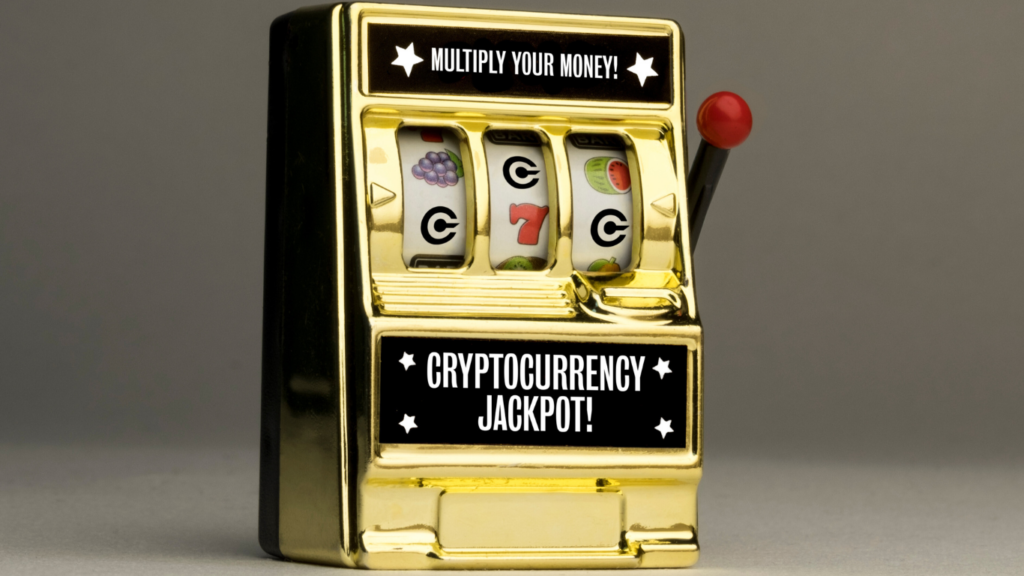The Rise Of Cryptocurrency In Gambling
Cryptocurrency is reshaping the gambling world, bringing innovation to online casinos and sportsbooks. It offers unique advantages that make it an attractive choice for both operators and players.
Understanding Cryptocurrency In Online Casinos
Cryptocurrency enables online casinos to process payments more efficiently and securely. Unlike traditional currencies, digital assets like Bitcoin rely on blockchain technology, ensuring transparency. Transactions occur almost instantly, reducing delays common with bank transfers or credit card payments. For players, this eliminates intermediaries, lowering fees and increasing control over their funds.
Online casinos using crypto also appeal to privacy-conscious users. Cryptocurrency transactions only require wallet addresses, not personal data, preserving anonymity. This feature is especially important in regions where local laws restrict gambling activities or require extensive identity verification.
Popular Cryptocurrencies Used For Gambling
Several cryptocurrencies dominate the gambling market due to their reliability and ease of use:
- Bitcoin (BTC): Frequently accepted across platforms, Bitcoin is favored for its widespread recognition. Many casinos offer exclusive bonuses for Bitcoin deposits.
- Ethereum (ETH): Chosen for its smart contract capabilities, Ethereum powers innovative betting models like provably fair games.
- Tether (USDT): This stablecoin is valued for maintaining a 1:1 peg to the US dollar, minimizing volatility risks during gameplay.
- Litecoin (LTC): Known for faster transaction speeds and lower fees, Litecoin supports seamless gaming experiences.
- Dogecoin (DOGE): Popular for its community backing, Dogecoin offers an alternative option for casual players.
Many platforms now support a mix of cryptocurrencies, catering to diverse user preferences and broadening accessibility to crypto-powered betting.
Advantages Of Using Cryptocurrency In Gambling

Cryptocurrency is revolutionizing gambling by offering unique benefits that traditional payment methods can’t provide. Players and operators experience significant improvements in privacy, speed, and global accessibility.
Enhanced Privacy And Security
Cryptocurrency ensures anonymity by relying on wallet addresses instead of personal information. Blockchain technology secures transactions with encryption and decentralization, virtually eliminating risks of hacking or fraud. For privacy-conscious players, these features deliver unparalleled peace of mind, especially in regions with stringent gambling restrictions.
Faster Transactions And Lower Fees
Processing times for cryptocurrency transactions are faster than traditional banking systems, often completing within minutes. Absence of intermediaries like banks lowers transaction fees significantly, saving players and operators money. For example, Bitcoin and Ethereum provide seamless transfers without unnecessary delays that could hinder gameplay.
Accessibility Across Borders
Cryptocurrency operates independently of national currencies and banking regulations, enabling cross-border transactions without conversion issues. Players from different regions can access gambling platforms effortlessly, bypassing limitations like restricted payment gateways. This global approach allows more inclusive participation in online gambling markets.
Challenges And Concerns
Cryptocurrency’s integration into the gambling industry brings challenges that can’t be ignored. Addressing these concerns is crucial for its long-term acceptance.
Regulatory Issues
The lack of consistent regulations for cryptocurrency gambling creates uncertainty. Different countries have varying stances, with some banning it entirely and others allowing it with minimal oversight. Without harmonized policies, players and operators face legal risks that could disrupt operations or lead to sanctions. Jurisdictional ambiguities also complicate compliance efforts and hinder industry growth.
Volatility Of Cryptocurrencies
Cryptocurrency values can experience significant fluctuations in short periods. For example, Bitcoin’s price often sees swings of 5-10% within a single day. High volatility impacts the stability of:
- wagers
- winnings
- deposits
which can deter both casual and professional gamblers. Bettors might lose value between depositing funds and withdrawing winnings, undermining trust in crypto-based gambling.
Potential For Fraud And Scams
Decentralized systems, while secure, attract fraudsters exploiting inexperienced users. Scams like fake gambling platforms or phishing schemes target unsuspecting players, stealing funds or personal information. Operators may also face challenges combating fraudulent behavior or malicious activities without central authority oversight. Blockchain’s transparency helps minimize risks, but vulnerabilities still exist.
Transformative Trends In Crypto Gambling
Cryptocurrency continues to innovate the gambling industry, driving new trends that redefine how players and operators engage. These advancements focus on decentralization, automation, and fairness, enhancing the overall experience.
Decentralized Gambling Platforms
Decentralized gambling platforms eliminate the need for traditional intermediaries, providing a peer-to-peer gaming environment. These platforms leverage blockchain technology to process bets and payouts transparently. For instance, platforms like Edgeless and FunFair ensure lower house edges and reduce operational costs by removing centralized control. Users retain full custody of their funds, enhancing security and control, while blockchain records enable immutable transaction tracking, creating trust in the system.
Smart Contracts In Gambling Operations
Smart contracts facilitate automated and trustless transactions in gambling operations. These self-executing contracts, built on platforms like Ethereum, automatically enforce rules and payouts when predefined conditions are met. For example, in sports betting, a smart contract can instantly distribute winnings after verifying match outcomes, removing manual intervention. This streamlines processes, reduces errors, and enhances user confidence in fair play.
Growth Of Provably Fair Gaming
Provably fair gaming uses cryptographic algorithms to verify game fairness and outcomes. Operators like BitStarz and Stake adopt this system, allowing players to confirm the integrity of dice rolls, card shuffles, or slot spins. This transparency attracts users seeking honest gameplay. By leveraging blockchain, provably fair gaming eliminates doubts of manipulation, promoting a more secure gambling environment.


 Cory Brooklinser has been instrumental in expanding Gamble Live Risk’s coverage of slot strategies and casino promotions. His ability to break down complex gaming mechanics into practical tips makes the platform more accessible to players looking to enhance their experience. Through his dedication, Gamble Live Risk continues to provide valuable insights that help users make informed decisions in the gambling world.
Cory Brooklinser has been instrumental in expanding Gamble Live Risk’s coverage of slot strategies and casino promotions. His ability to break down complex gaming mechanics into practical tips makes the platform more accessible to players looking to enhance their experience. Through his dedication, Gamble Live Risk continues to provide valuable insights that help users make informed decisions in the gambling world.